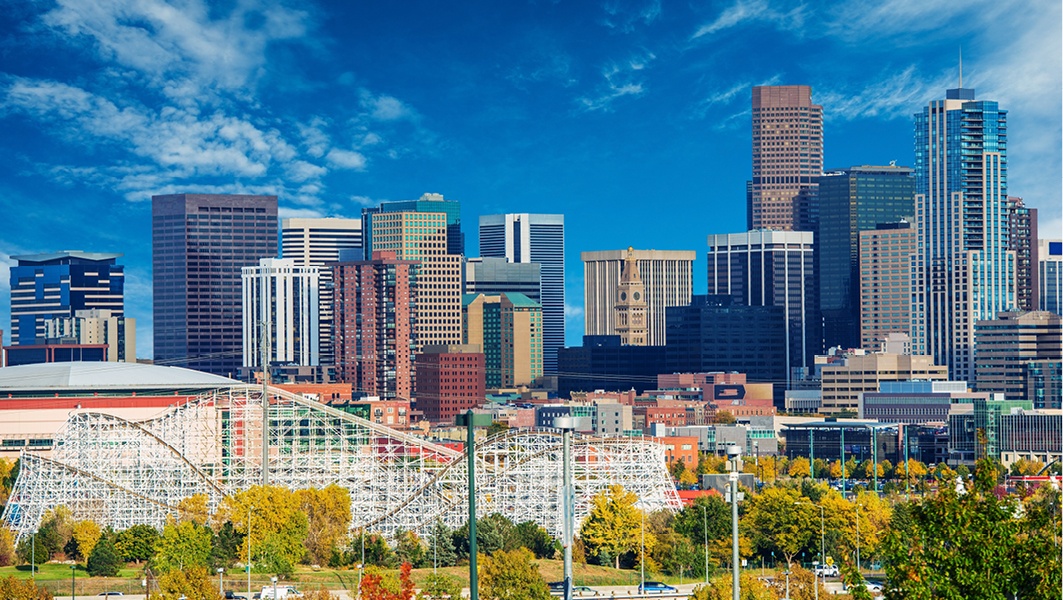River Mile Set To Revitalize Central Platte Valley
The South Platte River, the impetus behind Denver’s founding in 1858, is expected to see a mile of its banks revitalized in phases over the next 20 to 30 years.
Thanks in part to the city council’s June approval of an amendment to the 2007 Downtown Area Plan, the new River Mile neighborhood will encompass 62 acres around the Pepsi Center and the Elitch Gardens Theme and Water Park. This development will be bounded by Interstate 25, Speer Boulevard, Auraria Parkway, and the river.
This area, officially called the Central Platte Valley Auraria District, has long been underutilized. It is home to more than 15 surface parking lots, many of which serve sports fans and sit empty during teams’ road trips and the offseason. Three light rail stations serve the area, but the stops are not pedestrian friendly, and as a result, are less useful than they could be. The district has been called an “appalling grey moonscape” and “Denver’s monster parking crater.”
What Denver’s River Mile Could Look Like
Proposals for River Mile include a new street grid, pedestrian and bike bridges over the river and across the railroad tracks and interstate, riverfront parks, skyscrapers, multi-level parking structures, restaurants, stores, entertainment venues, and apartments and condos for up to 15,000 people. All of this would make for an urban neighborhood designed around walking, biking, and public transit, with parking maximums instead of minimums. The project could also include improvements to the river itself, such as dams, steps, docks, vegetation, and boating chutes.
River Mile would also contain affordable housing, make regional flood control improvements, build a pedestrian tunnel under Speer Blvd., and designate 137,900 square feet of public space for recreation centers, daycare centers, and schools. New buildings would vary in size, but a proposal includes several skyscrapers of 40 to 59 stories, which would require a change to existing height limits. Streets could be elevated by up to 20 feet so they would run above the rail corridor.
Revesco Properties, part of an investment group that purchased the Elitch Gardens property in
2015 along with Kroenke Sports & Entertainment (KSE) and Second City Real Estate, is spearheading River Mile. The buzzwords it’s using to describe the project — smart growth, sustainable community, human scale, mixed use, inclusive, connected — reflect a vision to overcome common challenges in urban planning and to diversify the downtown’s largely white and affluent population. KSE owns and operates the Pepsi Center, the Paramount Theatre, and Dick’s Sporting Goods Park, as well as the Colorado Avalanche (NHL), Denver Nuggets (NBA), Colorado Mammoth (NLL), and Colorado Rapids (MLS) professional sports teams. Second City Real Estate is a private equity partnership that invests mainly in office and multifamily properties in high-growth markets.
It’s no secret that Denver needs more housing (especially affordable housing) and less traffic, and River Mile could contribute to both goals with its plans to be a mixed-use, mixed-income neighborhood. What is a secret is whether Amazon’s second headquarters could be part of the plan. We won’t know the answer to that question until later this year. Also unknown is how much financing the project has secured.
What’s Next for the Central Platte Valley Auraria District?
The next step to putting these ambitious plans in motion is a rezoning approval by the city council that will take at least six months. If approval is granted, the first phase of redevelopment would focus on replacing the parking lots east of Elitch Gardens with a parking garage and high-rise buildings. Infrastructure projects like bridges and bike lanes would come several years later.
Elitch Gardens will remain open at its current site through the 2019 winter holiday season, if not longer. Eventually, it could relocate rather than just close if it can find a location with at least 120 acres — possibly outside the city.





